
This story originally appeared on Bounce and was produced and distributed in partnership with Stacker Studio.
How to prepare for holiday travel with a pet
The holiday season is quickly approaching, which heralds a number of enjoyable events and time off for travel. As people make vacation plans, the 7 in 10 U.S. households with pets have to decide whether to take their furry family members along or leave them in the hands of a sitter.
Fortunately, there are solutions for many of the obstacles that stand in the way of a perfect pet-friendly vacation—it just takes a little planning. As a pet parent, you will need to factor in extra time for travel, as your fur babies might require regular breaks to stretch their legs and relieve themselves. Health certificates also need to be up-to-date, especially if the trip involves crossing state lines. Finally, while you pack for yourself, remember to pack for your pets; they might not have as many "clothes," but their medication and supplements are just as important as your pajamas and towels.
To make traveling with your pets easy and fun—as all holiday trips should be—Bounce compiled a list of eight ways to prepare for holiday travel with a pet using information from different sources, such as The Humane Society, Best Friends Animal Society, and American Kennel Club, among other sources.
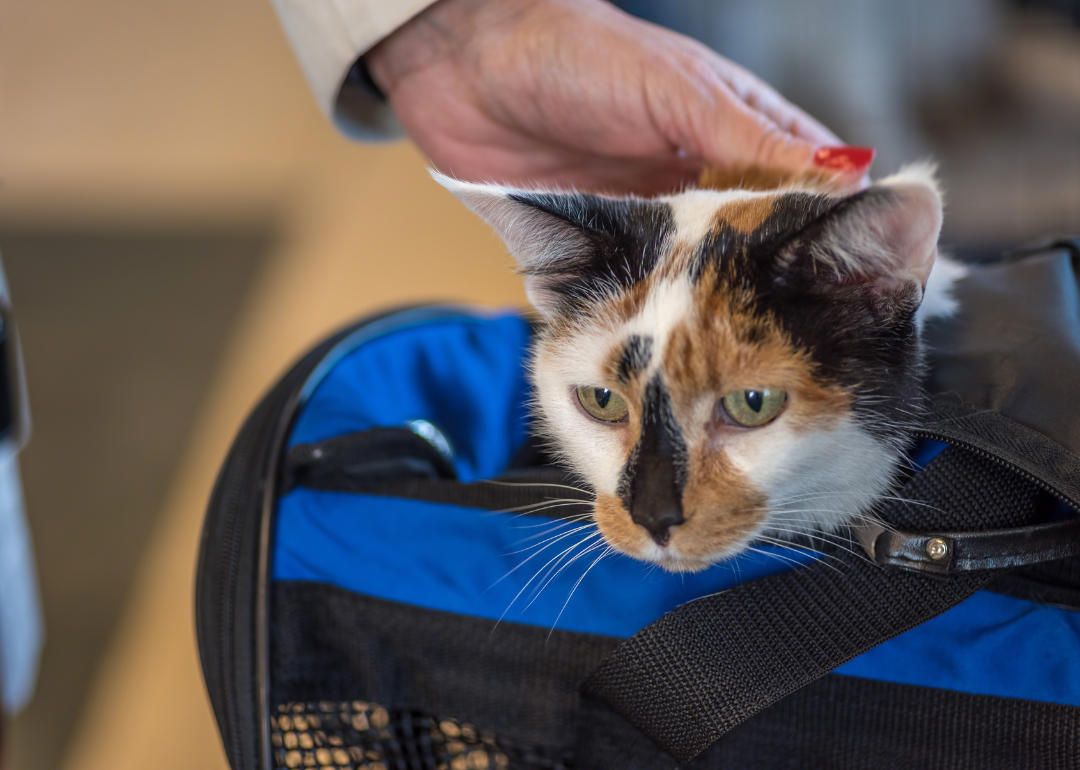
Be prepared for anxious animals
Just like many humans, pets get travel anxiety, which is stress or fear due to being in a moving vehicle. As an owner, it's wise to prepare for the likely event that they may experience mild discomfort or full-blown panic. Packing anti-anxiety pills is one option, but using scent as a calming method could also be another. Bringing something that smells like home can remind your pet of more comfortable surroundings and ease their worries.
There are also products like collars, sprays, and diffusers that use calming pheromones to soothe a dog. In a study published by the Journal of the American Veterinary Medical Association, lavender was shown to have a calming effect on your four-legged friends. Music can also do the same, according to a study published in Physiology & Behavior, so creating a playlist for your trip wouldn't only keep you entertained, but it will also calm your anxious pet.
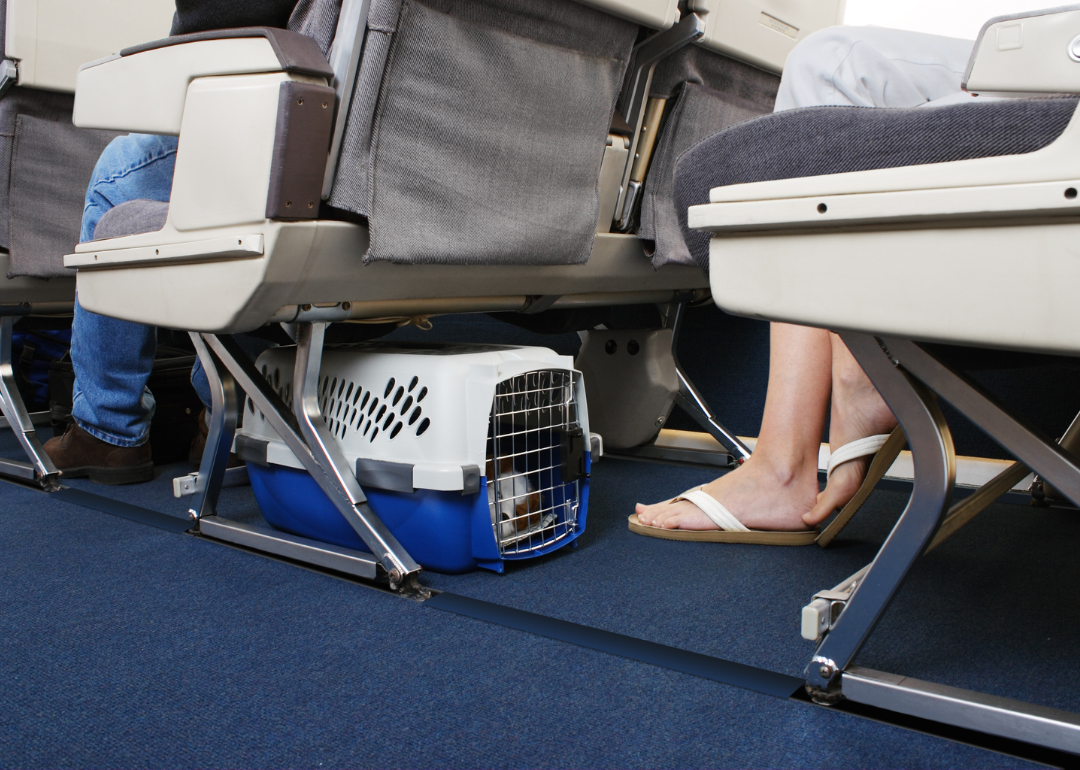
Make sure you have a safe carrier to secure them in the mode of transportation you will be using
Pets need cozy, travel-friendly accommodations, especially while in transit. Ensure the carriers are the right size for your pets and they provide enough room for ventilation. Pet Travel recommends that you go for carriers with zippers (not snaps) and waterproof bottoms. Most airlines require that your carrier enclose your pet, so consider that as well. Make sure to get them accustomed to the carrier before traveling by taking small practice trips.
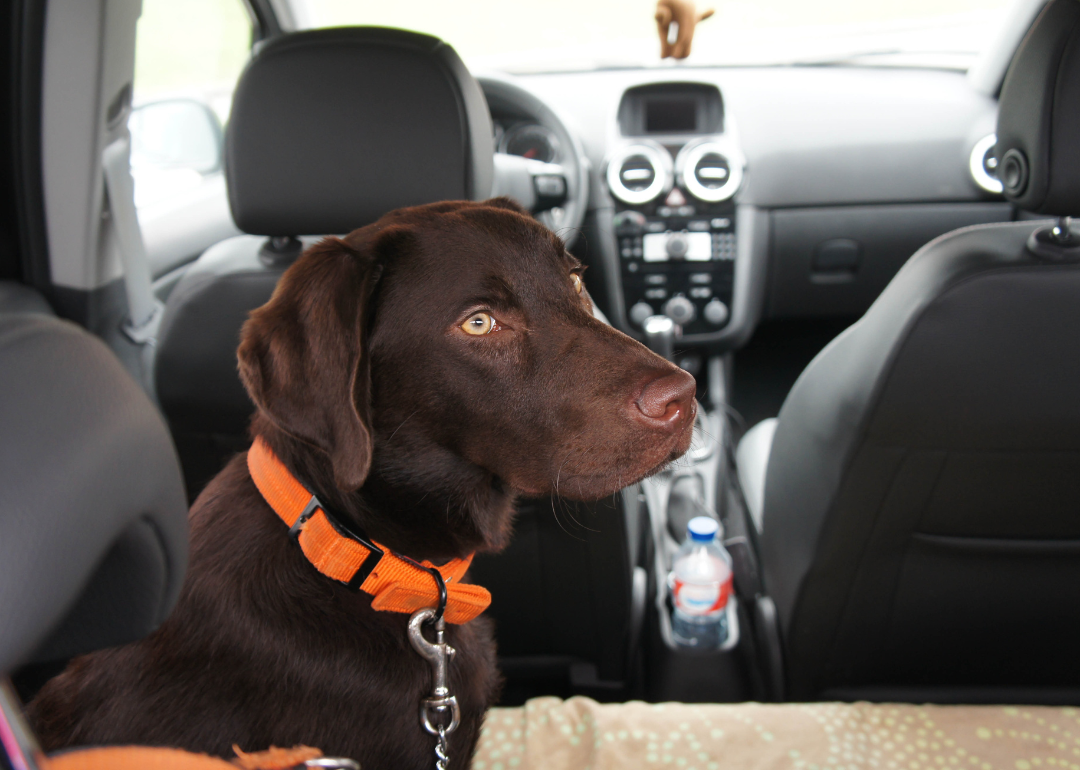
Bring a water bottle, a collapsible water bowl, baggies, and a leash for car trips
While packing your essentials and toiletries for a trip, remember to do so for your furry friend as well. Create a checklist that includes necessary supplies like a water bottle, collapsible water bowl, waste bags, treats, blankets, and other essentials your pet may need. Start with the American Kennel Club's gear list and customize as needed.
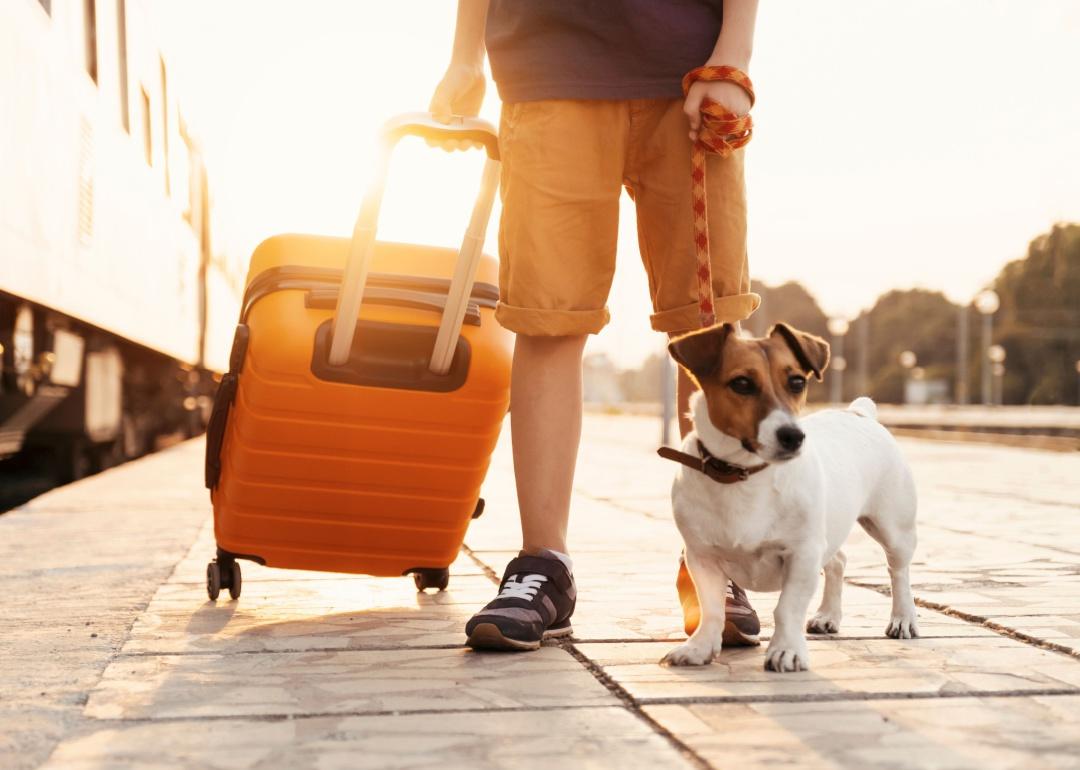
Stick to their schedule and factor in more time for everything
Try as much as possible to stick to their schedule. A routine gives them a semblance of familiarity. This can be the most challenging during holidays and other special days when your schedule is topsy-turvy, but it's crucial to maintain as much of their usual daily routine as possible and try to have them eat and exercise at the same time as they would at home.
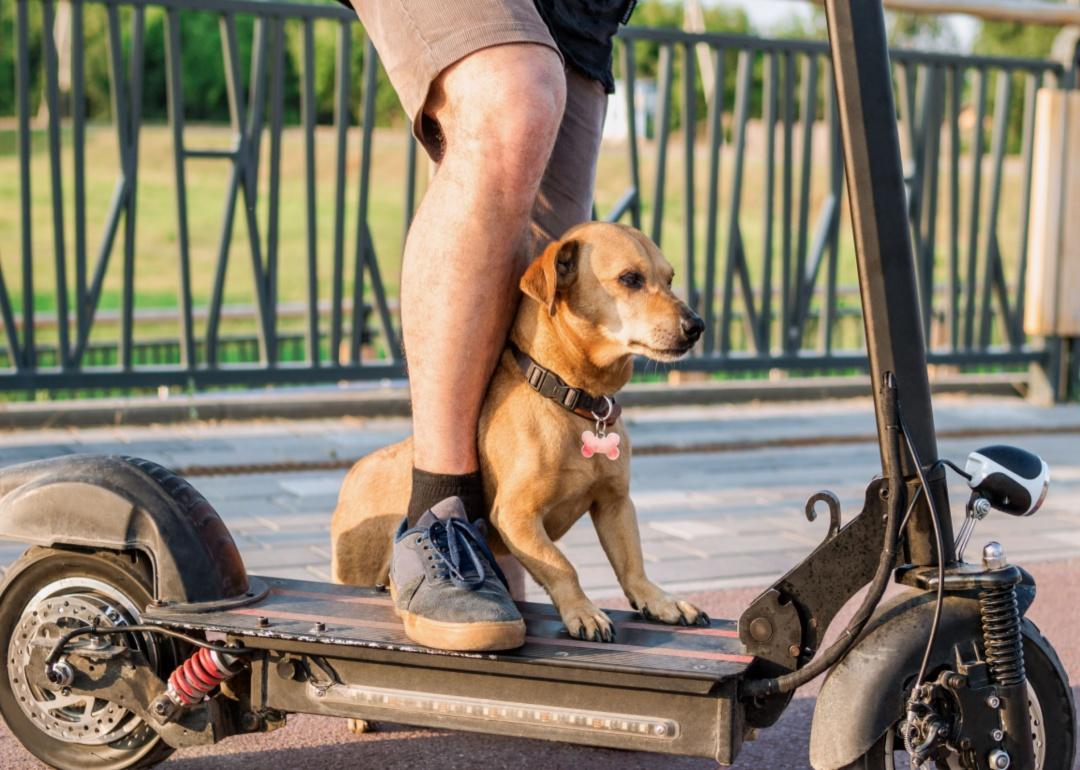
Bring ID tags, microchips, and make sure vaccines are all up to date
Before embarking on a trip with your pet, you want to ensure that all paperwork is complete and valid. You'll need an ID tag and the microchip for their identification. Pet owners must also ensure that their pets have taken all the necessary vaccines for their safety and that of other commuters.
Many airlines also mandate a Certificate of Veterinary Inspection, which must be issued 10 days before the travel date. Each airline may have different policies, so be sure to confirm directly with yours. Creating a separate checklist for your pet is a great practice to ensure none of their essentials are left behind.

Be prepared for a vet emergency
Before traveling, research veterinary hospitals close by. Sites like Emergency Vets USA provide contact information for each state and major city. If the nearest vet happens to be quite distant from your lodging, make sure to get your pet checked before the trip to ensure they are in the best state of health possible. Make a list of veterinary hospitals—closer or further from you—in whatever destination you're traveling to in case of emergencies. Even with this list handy, it's always good to pack a pet health and first-aid travel kit, as recommended by the Best Friends Animal Society.

Make sure you're up to date on pests and other risks at your destination
While picking hotels and exploring sites to visit is fun, it's important to pay attention to reports of pests and other potential dangers at your destination. New places may host unfamiliar pests that your pet isn't used to. If a common pet disease exists at your destination, you should vaccinate or medicate against such infections. For example, Frontline protects four-legged friends against fleas or ticks, while Heartgard guards against heartworm disease or intestinal worms. If vaccination or other precautions aren't possible, consider whether taking your pet along (and risking exposure) is truly necessary.
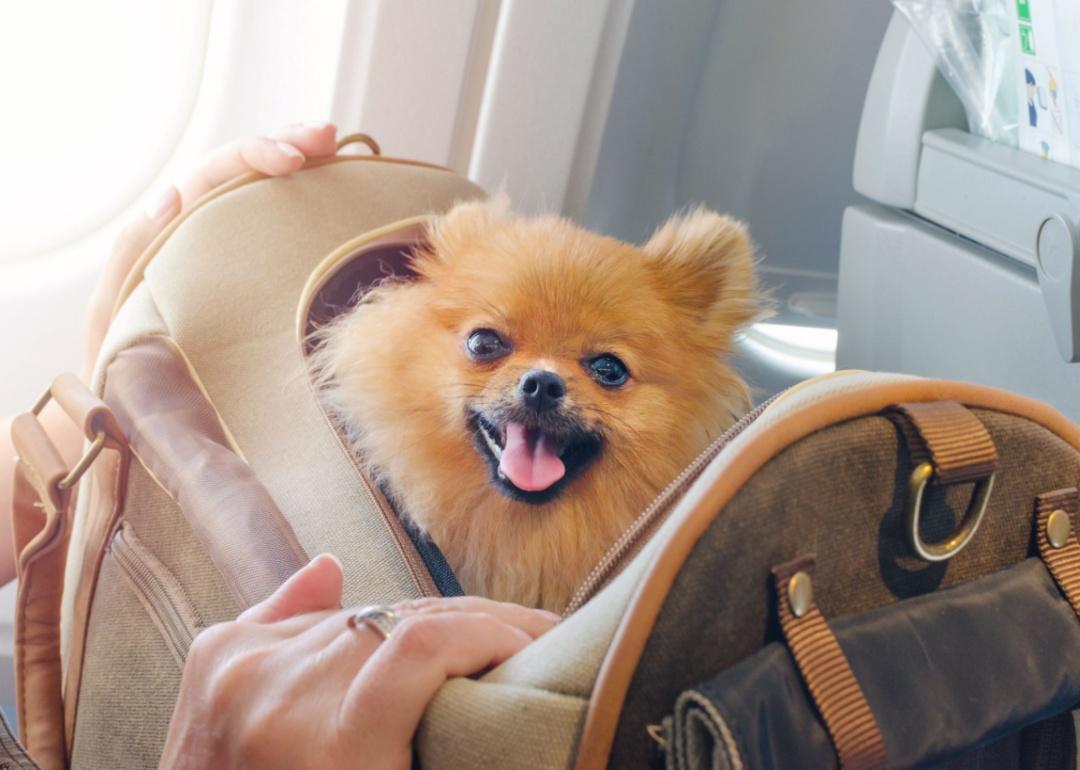
If you're planning to bring a pet on an airplane, make sure your carrier is within the allotted size (which tends to be pretty small)
Most airlines have size allowances for pet carriers. Traveling carriers that are too large may cost more money or may simply not be allowed on board. According to Newsweek, most airlines charge an extra fee to bring your pets along, starting at $95. For example, JetBlue charges $125 each way to bring a pet along. The airline limits two pets per passenger and counts your pet carrier as a personal item, which means it should also fit under the seat in front of you. Check your airline's specific requirements.



